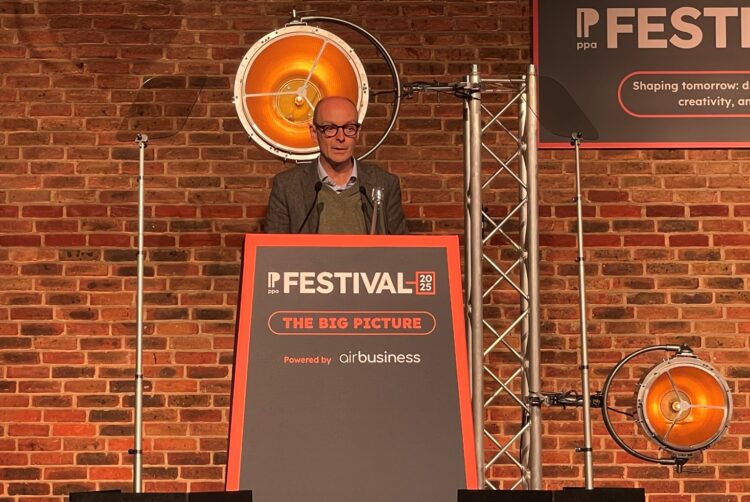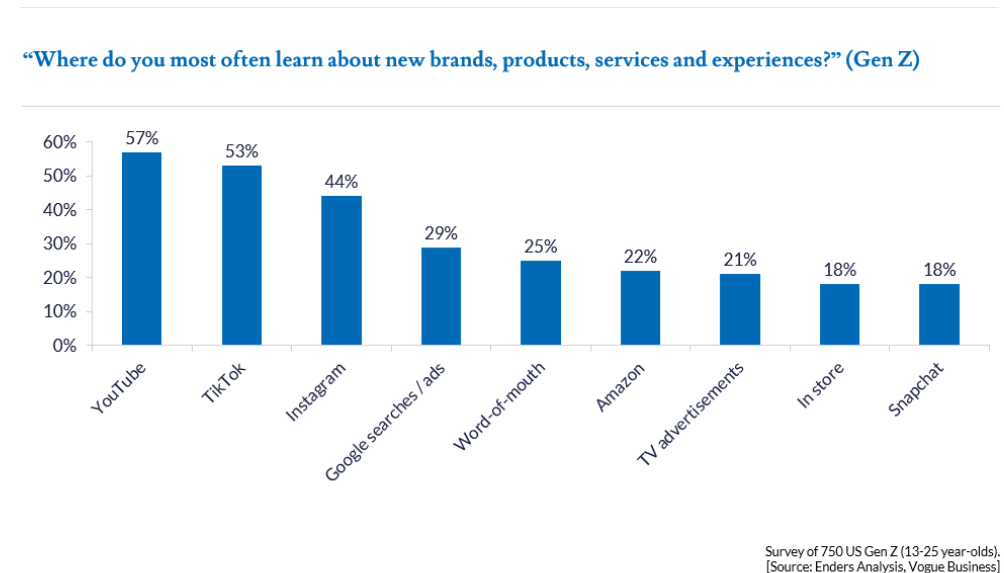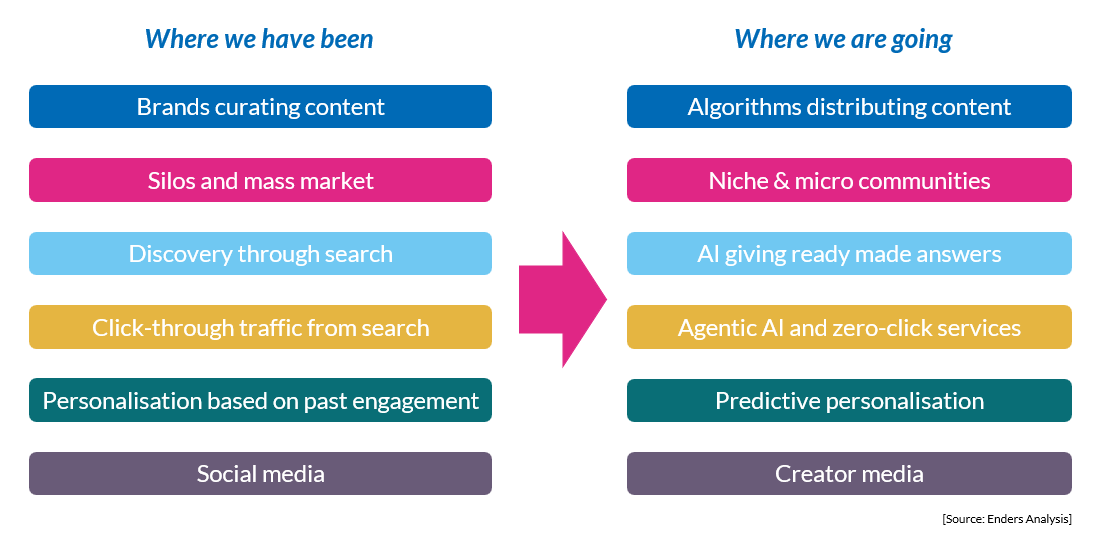‘Death of the website’: Publishers wrestle with the need to reinvent in AI era

“The centrality of the website is declining for many brands.”
That is one takeaway from a new report by Enders Analysis, presented by CEO and director of publishing and tech Douglas McCabe at the PPA Festival Wednesday morning.
“The website itself is no longer the primary destination for consumers as it struggles to meet expectations while AI erodes publisher monetisation,” the report concludes.
As McCabe outlined, the “death of the website” appears nigh as media brands compete in an “asymmetric battle with the creator economy”; personalised, algorithmic social platforms are now a primary means by which users find information online.
Indeed, a majority of Gen Z say they are most likely to learn about new brands, products, services and experiences via YouTube (57%) and TikTok (53%) compared to other mediums, be they elsewhere online or via word-of-mouth.

In contrast, websites are “gradually becoming redundant” as search traffic is “no longer a given” thanks to the development of AI Overviews.
As The Media Leader previously reported, referral traffic from search is estimated to have reduced by at least 25% since AI Overviews were introduced by Google last year.
Enders Analysis found that half of all publishers have reported at least some search traffic decline over the past year. Their report described AI overviews as “cannibalising website visits”.
“Click-through traffic is facing an onslaught”, it reads. “Algorithms have grown the expectation for content to be served rather than searched for.”
Consumer media can learn from B2B
McCabe suggested that media brands must focus on the importance of specialisation, personalisation, and community as means of achieving cut through in the platform-led era.
“We have entered the era of specialist suppliers,” he declared.

He proposed there is great opportunity for consumer titles to learn from B2B publishers in their ability to be useful in both digital and in-real-life interactions.
Publishers that position themselves as experts within a niche, use platforms to access communities, but equally develop and serve communities themselves by providing strong value and in-person events, are likely to succeed.
“Through peer-to-peer techniques, entering the community, being the community, of the community — the community literally expands the value of the product itself,” McCabe argued.
While he acknowledged that established publishing brands are “competing head-to-head with creators and influencers,” he noted that young people are “much more likely to sign up and pay for a digital service that they value than old farts like my generation ever will”, suggesting subscription models can work for many publishing brands going forward.
Indeed, according to a survey conducted by Enders Analysis, 40% of 18-24-year-olds currently pay for a digital subscription, with willingness to pay generally tied to “the perception of utility” a given publisher provides.
Premium publishers have a chance to stand out
McCabe noted as well that digital fatigue is “an actual thing”, citing, for example, that a large swath of social media users have indicated they would prefer platforms didn’t exist.
“What people do and what they value are not identical,” he said.
He advised publishers and brands not to “fall into the trap of using your brand to build and reinforce marketplaces of platforms, or position your brand as an experience limited by how the platform itself is valued.”
McCabe continued: “This room’s opportunity — I think this room’s job — is to demonstrate why platforms are a critical hygiene-distribution technique, but only rarely the strategy of the brand.”
Whereas magazines were once perceived as a media channel consumers would dive into to pass the time (a “pass-time”, so to speak), social media now fulfills that purpose for consumers today.
According to McCabe, this creates an opportunity for premium publishers to focus on being “top-tier consumer and world life experience[s]” while the platforms become the “pass-time”.
“In the end, usefulness is what people most value,” McCabe concluded.
With AI set to “accentuate a two-tier internet”, the onus is on publishers to remain firmly in the “higher tier” by providing utility and a sense of community.
Google’s AI is hurting publishers — buyers and agencies must speak up




